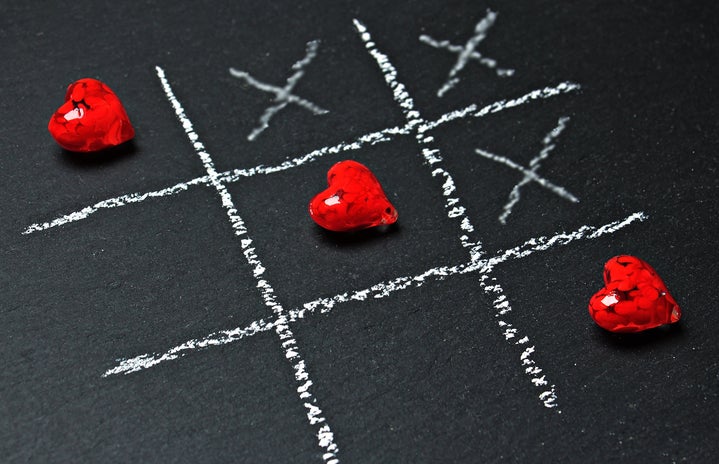“What went wrong?” A question we’ve all sought the answer to after a devastating breakup. “Was it me,” “was it them,” “was it something out of our control,” the questions running through our heads never seem to end post-breakup. We wonder if we weren’t pretty enough. We wonder if that one time we yelled at them for no reason, was the final straw. Or maybe, just maybe, it all was bad timing, and never really was “meant to be.” So how exactly do we find the answers to these questions? Will we ever really know the moment things fell apart or when good turned into very, very bad? Perhaps, always be wondering. We may just have to accept that breakups happen, people fall out of love, and life goes on (with a few cartons of ice cream and a good breakup playlist.) But maybe there really is an explanation as to why our relationships never work out—and it isn’t just our bad texting habits or jealousy to blame.
Naturally, my curiosity got the best of me and I turned to my most recent ex to ask the daunting question of “why”—why our eleven-month relationship crumbled before our eyes. His answer, I will never forget. He believed that our breakup was caused by our differing opinions on relationships themselves. While I, a hopeless romantic, envisioned my significant other being one of the biggest parts of my life, he, on the other hand, believed love and relationships to be but a small portion of his complicated life. Though he loved me, he loved a lot of other things too. A relationship was not, nor would ever be, the epicenter of his life. While I had every intention of making my spouse a number-one priority. I do not penalize him, or judge him for viewing relationships in such a way—this was just another one of our endless differences. Unfortunately, this difference, unlike the others, we couldn’t conquer.
Often in breakups, we attribute the fall of our relationship to irreconcilable differences regarding religion, money, lifetime goals, and even incompatible personality types. However, after this rather enlightening conversation with my ex, I realized that these differences paled in comparison to a difference of opinion of what a relationship is supposed to be. If one partner believes that their significant other is supposed to be the most important part of their life, while the other views the relationship as a fun, but small part their happiness—how then is this couple to operate? One partner would simply be dedicating less energy, less time, and less attention to the relationship, while the other puts their significant other at the spotlight of their life. Though people of different religions, different cultures, and different political affiliations make marriages work every day, I have a hard time believing a couple could overcome this particular difference.
People need to feel needed, especially in a relationship. But with that being said, a person must also feel that they are not being held to an unachievable standard. Just as I did not deserve to feel unwanted in my past relationship, my ex-boyfriend did not deserve to feel smothered. Perhaps the opposites attract model simply does not apply when it comes to clingy vs. independent. To put it simply, clingy with clingy, and independent and independent, might just be our best bet.
Now that I am in a relationship where the both of us put our love at an equal priority, I can say, with a great deal of confidence, that this just may be the key to a successful relationship. I am now fully convinced that to maintain a strong love, a couple absolutely must have a similar view of what love is supposed to be, and how big of a part a significant other should play in one’s everyday life. Otherwise, one-half of the couple will always feel undervalued, while the other feels suffocated. So, with that in mind, don’t hesitate to date someone different than you—just make sure you don’t date someone with different relationship priorities than you.


